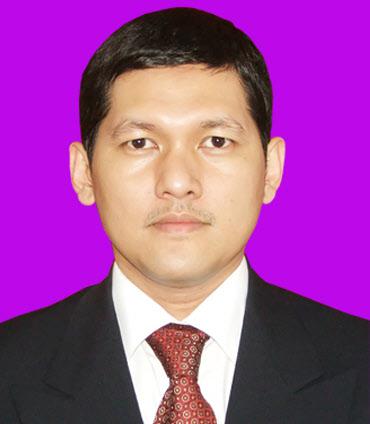
Dr. Peri Akbar Manaf, B.Sc., MBA.
Dr. Peri Akbar Manaf, B.Sc., MBA. is currently working as the Deputy Head of School of Business Management at Binus Business School. He has been teaching for undergraduate to graduate program specifically in the subject of Marketing, Retailing, Ethical Marketing, Management Strategic and Organizational Behavior.
Before joining Binus Business School, for 17 years Dr. Peri had been responsible in diverse finance application and field operation, retailing and strategic marketing in different businesses locally and internationally.
Case Document
[CASE STUDY] FAKE NEWS: A LOOK AT COMPLETELY UNTRUE HEADLINES
In a world where democracies are important, news organizations play a crucial role in the development of modern society. In other words, media organizations significantly influence society through their content. The character of the media is interesting in this regard. The media serves as a surveillance for public institutions and society, but media outlets are also business entities with the baggage of potential bias and interests that come with money.
As the press has grown into a massive and powerful existence, especially with the emergence of online media, there has been a significant change in reporting news from things that already happened to things that are happening. However, in order to provide 'real-time' news, the essence of journalism, which should strictly rely on the verification of facts, seems to be often neglected. Some of the most important aspects of the media's social responsibilities lie in the areas of ethical journalism, news accuracy, and media bias. The failure to appraise upon those aspects might cause public misinformation and, in the Indonesian context, social conflict.
In 2017, in West Kalimantan, Maman Budiman, a 53-year-old man was on March 26 attempting to visit his son in Amawang village in Mempawah regency when he was beaten to death by local people who suspected him of preying on children. Maman, who was a trader in petai beans (bitter beans), had been intending to deliver some rice and other foods to his son, Tedi (26) when he stopped to ask for directions. He was brutally bashed and detained at the village hall. At the time, false information on “massive” child kidnapping was being spread in the country through social media and chat apps which lead people to believe it. As people rely more on social media for news, there is a real risk of fake news hijacking Indonesian democracy. It is crucial that Indonesian schools teach children to practice critical thinking, so they can distinguish between facts and lies because media have a strong influence towards our children these days in order to get the standard perspective of the news and prevent bias on news media.
[CASE STUDY] RELEGATING RESPONSIBILITIES: A STUDY OF PERTAMINA UNIVERSITY
This case study strives to capture the way Pertamina University (PU), as a token of PT Pertamina's CSR program, generates money as well as attracting talents to cover the employee turnover. This university should be distinguished from the Pertamina Corporate University (PCU) on which employees do the in-house trainings. In contrast, the PU recruits and educate students to catch up the corporate operational standards after which they would work for the corporation.
PT Pertamina relegates their CSR programs through another legal entity called the the Pertamina Foundation (PF). However, the 2012 Government Regulation No. 47 obliges the CEO to executes the CSR program afther which earning the approval from the BOD. In other words, CSR programs should not be run by other organisations whose legal standing are different.
As some, if not most, Indonesians perceive the idea of organisational/corporate social responsibilities as no more than philanthropy, donations or charities, the university might be an example of the best practice of ethical CSR within which the program succeeds to be financially productive, and supporting the corporate business activities.
